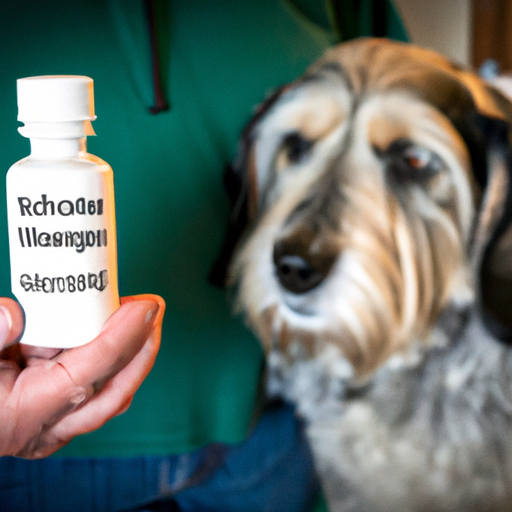“`markdown
What Antibiotic is Used to Treat UTI in Dogs?
Understanding UTIs in Dogs
As a caregiver, you understand better than anyone that the health of your furry friend is of utmost importance. It’s crucial to understand the ins and outs of urinary tract infections (UTIs) in dogs. These infections are caused by bacteria that can infiltrate your dog’s urinary tract, causing discomfort and potential health risks.
Common Symptoms of UTI in Dogs
Just like humans, dogs can also reveal their discomfort in their own way. Here are some common signs you need to look out for:
- Difficulty urinating
- Frequent urination
- Blood in the urine
- Urinating in unusual places
- Lethargy or fatigue
- Loss of appetite
Antibiotics Used to Treat UTIs in Dogs
In most cases, antibiotics are the first line of defense against UTIs in dogs. The choice of antibiotic depends on the type of bacteria causing the infection, and the health of your dog.
- Amoxicillin: This is often the first choice for treating UTIs in dogs. It’s effective against a wide range of bacteria and is generally safe for dogs.
- Cephalexin: This is another broad-spectrum antibiotic that’s commonly used. It’s particularly effective against bacteria that are resistant to other types of antibiotics.
- Enrofloxacin: This antibiotic is used for severe or complicated UTIs. It’s a stronger medication, so it’s typically reserved for cases where other antibiotics haven’t been effective.
| Antibiotic | Use Cases | Side Effects |
|---|---|---|
| Amoxicillin | First choice, broad-spectrum | Mild, such as upset stomach |
| Cephalexin | Broad-spectrum, resistant bacteria | Mild, such as diarrhea |
| Enrofloxacin | Severe or complicated UTIs | Potential for joint damage in young dogs |
Preventing UTIs in Dogs
Preventing UTIs is always better than treating them. Here are some strategies you can employ:
- Ensure your dog has access to clean water at all times.
- Encourage frequent urination by taking your dog out regularly.
- Maintain a balanced diet to support overall health and immunity.
FAQ
Q: Can I treat my dog’s UTI without antibiotics?
A: It’s not recommended. UTIs are bacterial infections and require antibiotics for treatment. Always consult with your vet.
Q: Can my dog’s diet affect their chance of getting a UTI?
A: Yes, a balanced diet can support your dog’s immune system and help prevent infections.
Q: How long does it take for antibiotics to work on a dog’s UTI?
A: Improvement is typically seen within a few days, but the full course of antibiotics should be completed as directed by your vet.
Q: Can UTIs in dogs be prevented?
A: While not all UTIs can be prevented, regular hydration, frequent urination, and a balanced diet can reduce the risk.
Q: Are certain breeds more susceptible to UTIs?
A: Yes, some breeds like Bichon Frise, Shih Tzu, and Yorkshire Terriers are more prone to UTIs.
“`



